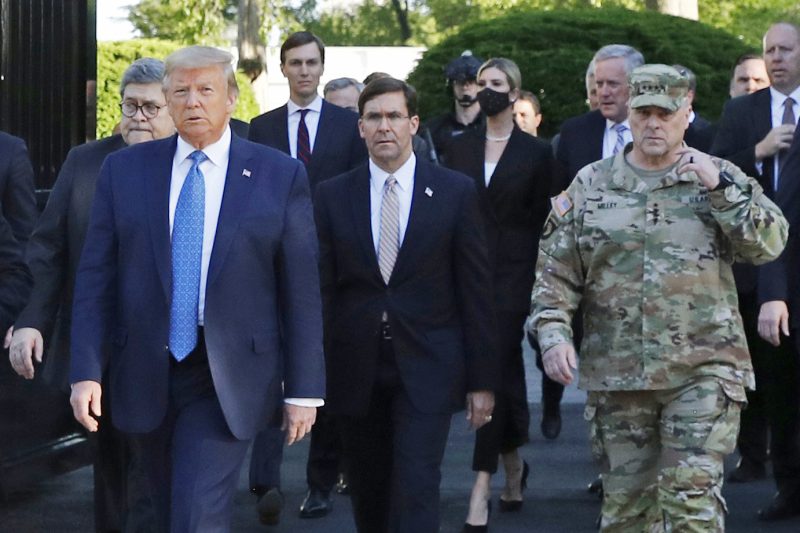The article discusses the conflicting views surrounding former President Donald Trump and the term fascist. According to past advisers, Trump exhibits fascist tendencies, while Trump himself denies these claims. This divide raises the question of whom to trust in evaluating Trump’s political ideology and behavior.
Advisers who worked closely with Trump during his presidency have come forward to express concerns about his authoritarian tendencies. They point to his rhetoric, policies, and actions, which they believe align with fascist principles. These advisers have highlighted Trump’s disdain for democratic norms, his attacks on the media and political opponents, and his promotion of divisive and nationalist rhetoric as evidence of his fascist inclinations.
On the other hand, Trump vehemently rejects the label of fascist and dismisses such accusations as politically motivated attacks. He argues that his policies were aimed at putting America first and prioritizing the interests of the American people. Trump asserts that he was focused on restoring strength and prosperity to the country and rejects any association with authoritarianism or fascism.
In light of these contrasting perspectives, the challenge for the public is determining whom to trust. The advisers who have spoken out against Trump have firsthand knowledge of his behavior and decision-making, making their insights valuable in understanding his leadership style. However, their accounts may be influenced by personal biases or political motivations, casting doubts on the objectivity of their assessments.
Conversely, Trump’s denial of being a fascist may be seen as self-serving and defensive, given the negative connotations of the term. His supporters are likely to accept his narrative and dismiss criticisms as part of a larger political agenda against him. This complicates the process of discerning the truth and evaluating Trump’s actions and intentions.
Ultimately, the decision of whom to trust regarding Trump’s alleged fascist tendencies falls on individual interpretation and assessment of the available information. It is essential for the public to critically analyze differing viewpoints, consider the credibility of the sources, and form informed opinions based on facts rather than biases or preconceptions. By engaging in open dialogue and seeking diverse perspectives, a more nuanced understanding of the complex dynamics surrounding Trump’s leadership can be achieved.
